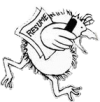Blog
A visual learner communicates best with diagrams, and mind maps flow charts and other visual aids.
When undergoing medical training, including medical specialty training, doctors primarily learn visually. The more visual the person is, the better doctor they will be, particularly in the fields of surgery, radiology, and dermatology. Job interviews are predominantly oral and use an auditory communication style. For a visually orientated person, they can prove to be difficult.
As part of our medical interview training, we have developed some strategies to apply in preparing for medical interviews to assist you to succeed at a medical interview. The key techniques that help visual learners are to identify the style of question are it an open, behavioral or situational question? Then use the appropriate structure to respond to the question. Have 3-4 key points to discuss in your answer. The most important aspect to remember is that the medical interview is not an exam. If you memorize your answers, you will miss the point of the questions. To answer behavioral questions, it is important to have prepared some examples to demonstrate how you deal with certain situations. The most common behavioral questions are around mistakes, underperforming junior doctors, and conflict. These should be prepared in the STAR structure before the interview.
In many of the interviews, it is not possible to use visual aids as the time is too short. Some specialties such as Dermatology provide you with questions before the interview. To make the most of this opportunity, it is important to make brief notes of the example and the key points you want to highlight in your response.
For medical specialty interviews which do not give you the questions in advance, the most effective preparation is to use previous questions as an indicator of topics and question styles and write down the key points. The final step in preparing is practice and also tape your yourself and listen to your answers for content.
Interviews are just conversations between colleagues, so listen carefully and respond to the question keeping in mind that your body language needs to be appropriate. Once you stop seeing the interview as a test and treat it as a conversation, it will be easy to demonstrate your strengths naturally.
At Impressive Interviews, we can help you excel in your career with interview skills training and medical interview preparation Australia wide. Contact us to take your career to the next level.
© 2024 Impressive Interviews. All Rights Reserved.

